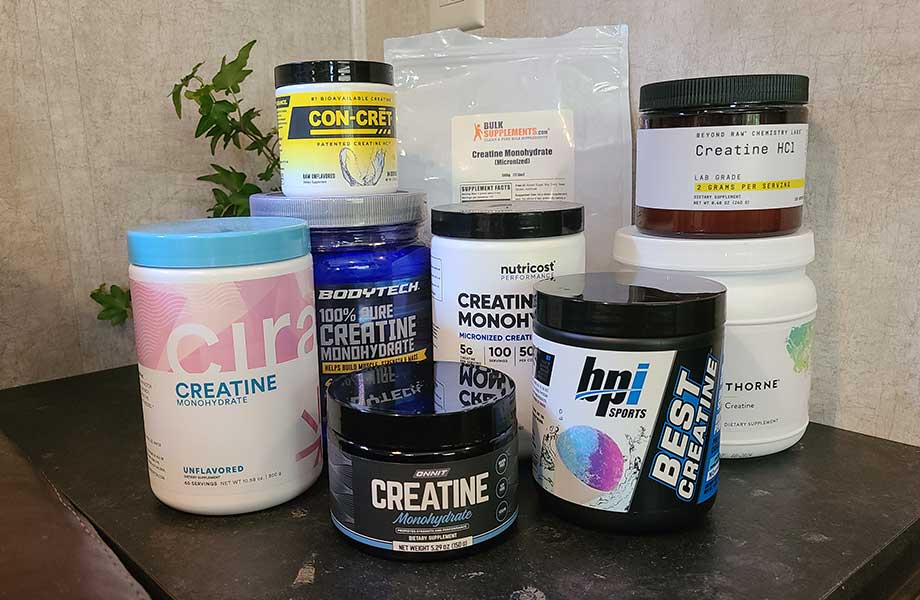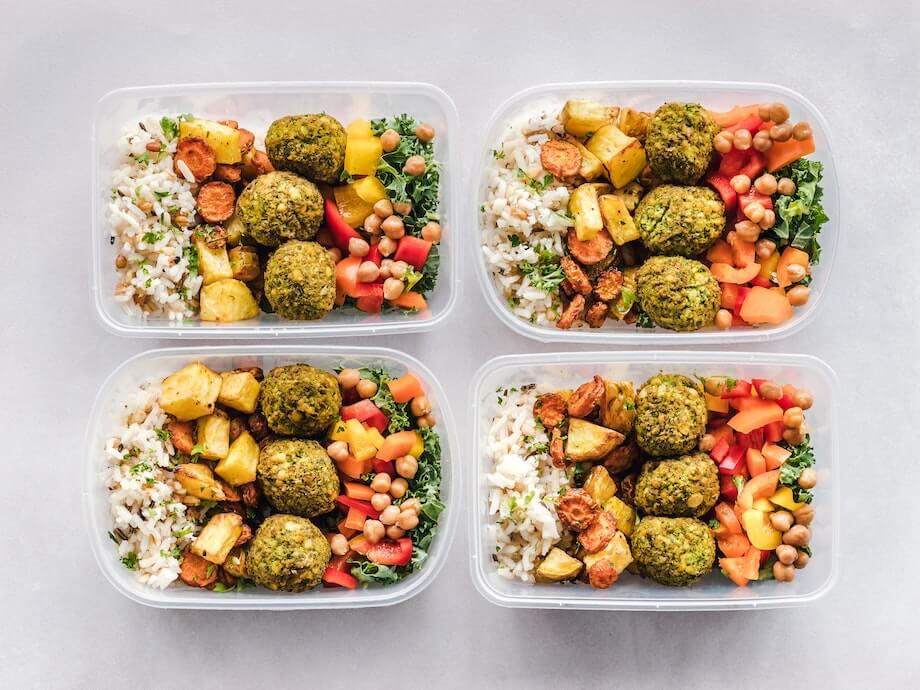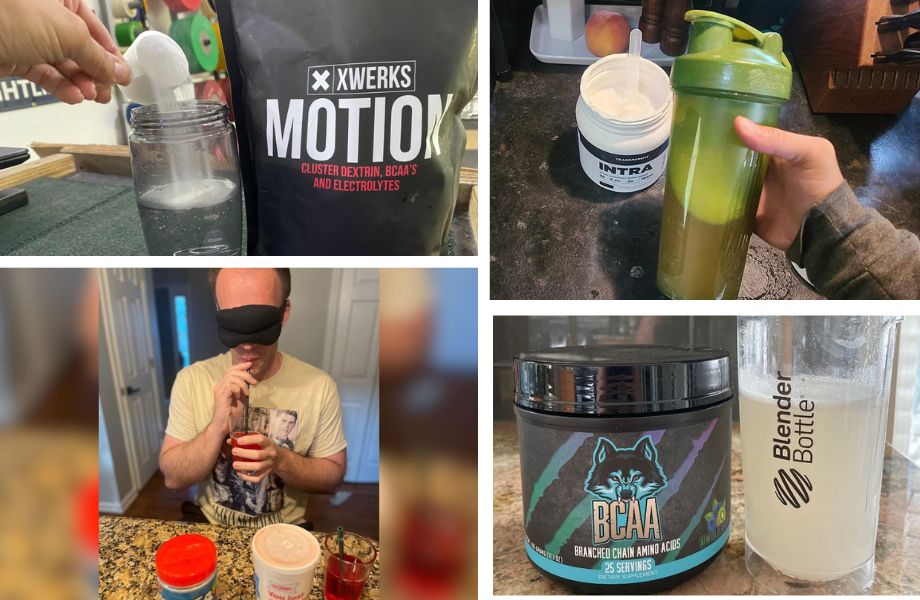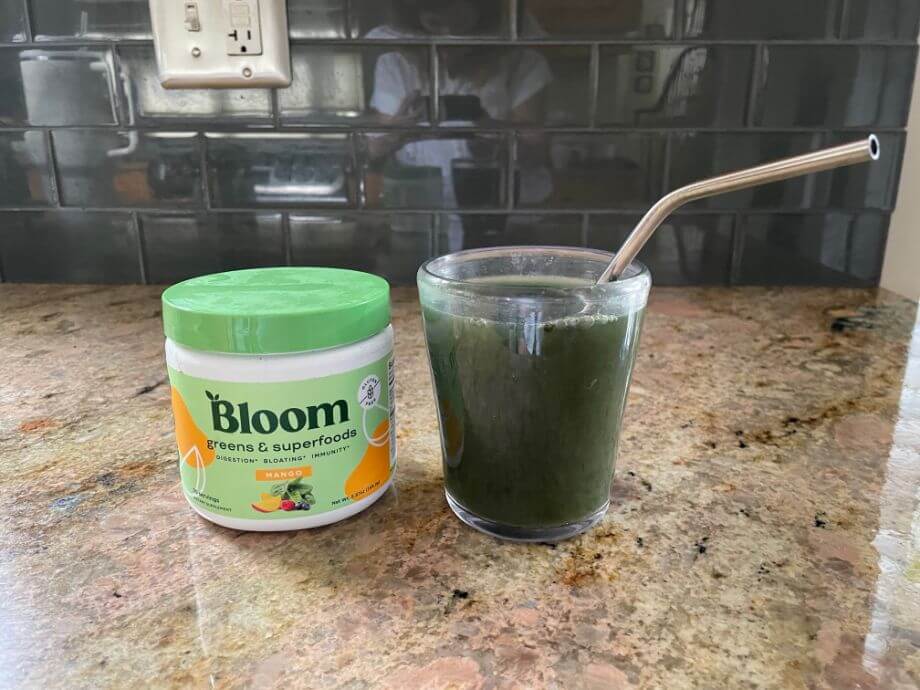Whether you’re new to creatine or have been taking it for years, you’ve likely wondered how to get the greatest possible benefits from this supplement. Supplements can sometimes be more or less effective depending on when you take it, so when is the best time to take creatine? Does it matter whether you take it before or after a workout, and does it help to take it with food?
If these questions have been floating around your brain, you’re not alone! As a registered dietitian and certified personal trainer, I’ll explain how creatine works and discuss considerations for the optimal time of day to take it.
Medical disclaimer: This article is intended for educational and informational purposes only. It is not intended as a substitute for medical advice. For health advice, contact a licensed healthcare provider.
When Is the Best Time to Take Creatine?
Creatine timing is important to think about, but we don’t have to overcomplicate things.
Is Creatine Timing Important?
According to a May 2022 review published in Frontiers in Sports and Active Living1, there’s no specific time of day when creatine will become significantly more effective than at other times.
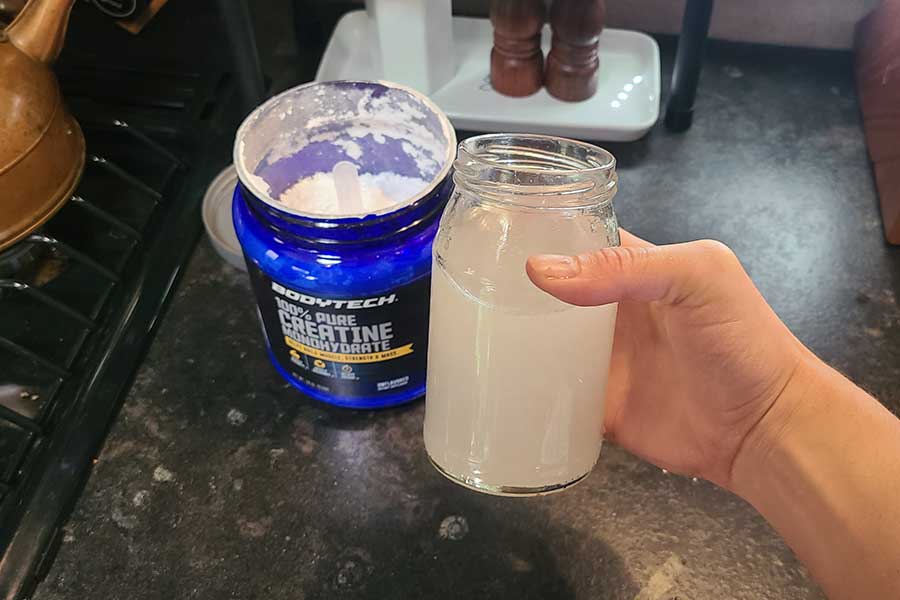
Taking Creatine Pre-Workout
Some people swear by taking it before a workout, claiming that the increase in blood flow during exercise will boost the amount of creatine taken up by the muscles. There’s likely some truth to this, but it’s possible that taking creatine too soon before a workout may have the opposite effect. Blood flow to the digestive system slows down during exercise, so creatine absorption may also be slowed if taken immediately before working out.
Taking Creatine With Food
Taking creatine with a meal, snack, or protein shake that contains carbohydrates or protein can improve muscle creatine levels better than taking creatine alone, but research hasn’t shown any clear benefits of this strategy for improving actual exercise performance.
Taking Large vs Small Doses
It also isn’t clear whether taking one large dose or multiple smaller doses throughout the day is more effective.
Taking Creatine On Rest Days
It’s perfectly fine to continue taking your creatine on rest days. In fact, it’s highly encouraged as it helps establish the daily habit of taking creatine and adds to your muscle reserves.
So when is the best time to take creatine? I’d say whenever it’s convenient and easy to remember. Consistency is key with creatine supplementation, so choose a time that fits well in your daily routine.
RELATED: How To Use Creatine
What Is Creatine?
Creatine is a natural compound produced2 by the liver, pancreas, and kidneys from three amino acids: arginine, glycine, and methionine. It’s stored mainly in skeletal muscle as creatine phosphate (also called phosphocreatine), with smaller amounts in the brain and testes.
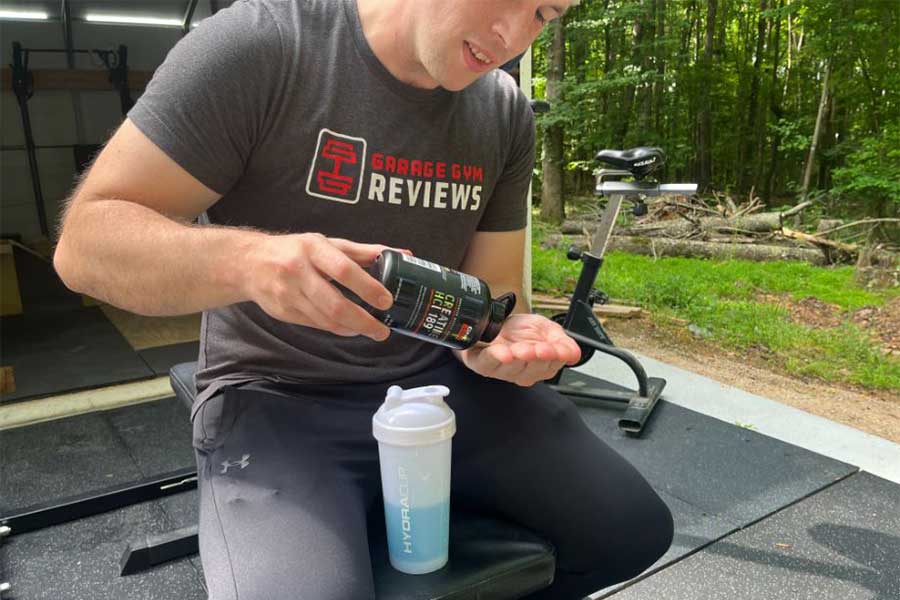
Animals also store creatine in their muscles, so humans can get more of it from consuming animal-based foods like red meat, poultry, and fish. This popular supplement is known for its ability to provide energy during short-term, high-intensity exercises like weightlifting or sprinting.
How Does Creatine Work?
The energy generated by creatine isn’t in the form of calories like you would get from food. Instead, creatine is used for energy production through its role in regenerating adenosine triphosphate (ATP), a molecule the body breaks down for energy. The more creatine phosphate in the muscle, the more it can be used to regenerate ATP and provide energy when working out.
Creatine is sold as a dietary supplement. It can be purchased in capsule form, as a loose powder, or as an ingredient in multi-ingredient pre-workout supplements.
Creatine Benefits
There’s no question about the popularity of creatine among fitness enthusiasts, but is it actually effective?
Unlike many other dietary supplements, the answer is a resounding yes! There are many benefits of creatine supplementation, most of which stem from its ability to effectively load skeletal muscle cells with creatine. In other words, supplementation helps maximize muscle creatine stores.
The rationale behind taking creatine is to fully saturate the muscles with creatine phosphate so that it’s readily available to regenerate the energy-providing molecule ATP during high-intensity anaerobic exercise. Muscles are typically 60-80% saturated with creatine in people who eat meat, and supplementation can maximize this percentage.
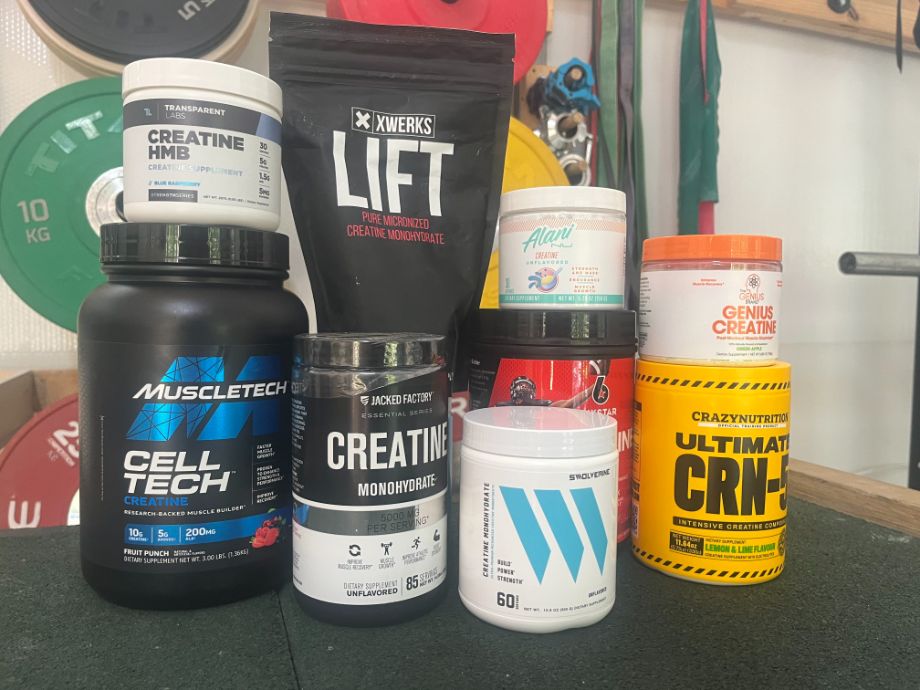
Vegans and vegetarians may benefit the most from creatine supplementation since their dietary creatine intake and resulting muscle creatine stores are very low.
You’re probably aware that creatine can help you build muscle, but it also provides a host of other advantages. The International Society of Sports Nutrition3 endorses the following benefits:
Improved Muscle Mass and Strength
Having more creatine available in the muscle can help you work harder during exercise. It’s this energy-providing effect of creatine that can help you complete an extra rep or two when lifting weights, leading to better lean muscle growth and strength over time.
Body composition improvements won’t happen overnight, but you should see results as long as your resistance training and supplementation regimens are consistent.
Faster Recovery After Exercise
Creatine may help enhance recovery after intense training sessions in a variety of ways. It’s been found to improve muscle strength during recovery, reduce inflammation in both marathon runners and sprinters, and reduce levels of tissue damage after a tough workout.
RELATED: Should I Take Creatine On Rest Days?
Improved Sprint Performance
Sprinting is an anaerobic sport, meaning that it relies on the body’s ability to generate large amounts of muscular force over a short period of time. It primarily relies on ATP for energy, rather than endurance (aerobic) running which requires large amounts of carbohydrates for fuel.
Because of this, creatine supplementation effectively improves sprinting performance in the same way it improves weightlifting ability.
Improved Energy Storage
When taken with carbohydrates, creatine helps optimize the storage of said carbs within the muscles in the form of glycogen. When carbs in the bloodstream are used up, the body breaks glycogen down into glucose to serve as fuel for the muscles during exercise.
This means that creatine may provide benefits for exercise performance in activities other than resistance training and sprinting.
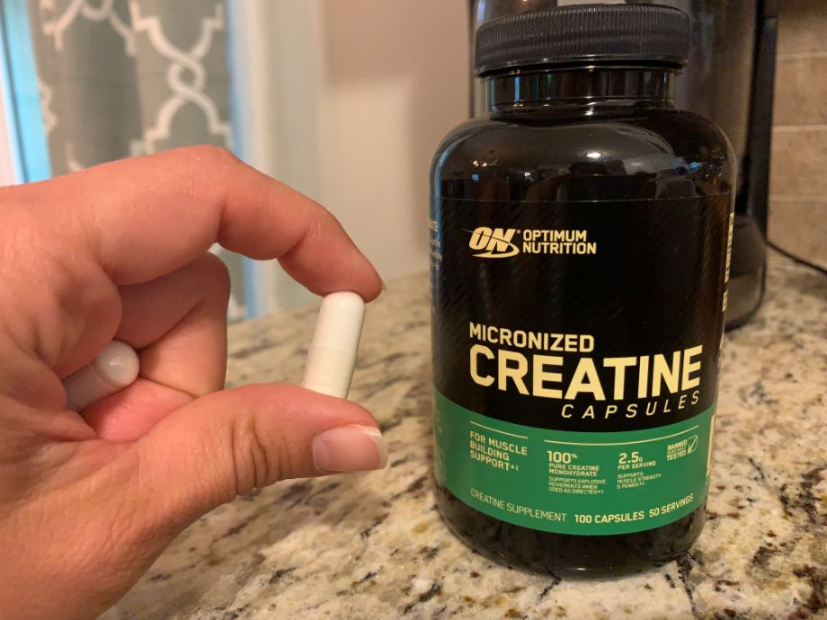
Enhanced Heat Tolerance
An interesting and more surprising benefit of creatine is that it can help control heart rate and perspiration when exercising in hot or humid weather, helping the body work more effectively in challenging environments.
Can Prevent Dehydration
Contrary to the myth that creatine causes dehydration, supplementation can actually have the opposite effect. Creatine increases the amount of water in your muscles, leading to improved total body hydration overall.
RELATED: How Much Water Should You Drink with Creatine?
Possible Protection Against Neurological Damage
Although only tested so far in rodents, research suggests that creatine supplementation may protect against neurological damage from trauma such as concussions, traumatic brain injuries, and spinal cord injuries.
If similar results are found in humans, it’s possible that taking creatine consistently could be useful for athletes at higher risk of these types of injuries.
How to Maximize Creatine Benefits
There are many types of creatine, but creatine monohydrate is by far the most well-studied and consistently effective for improving exercise and athletic performance. Taking another form of creatine may not be as effective.
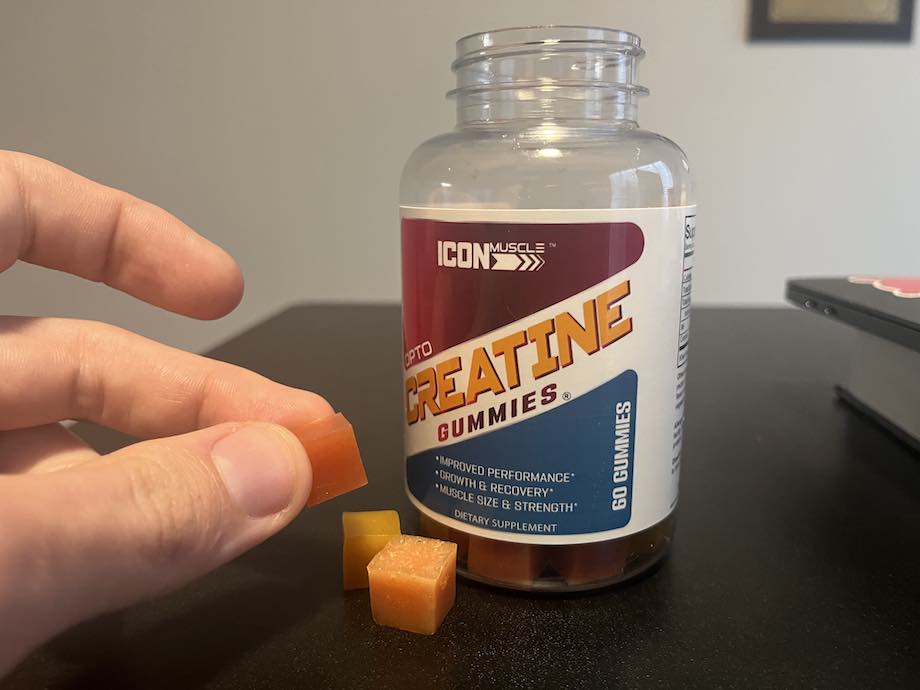
Besides the type of creatine you take, the amount you take is also important. A 5- to 7-day creatine loading phase is usually recommended, during which a total daily dose of 20 to 25 grams is split into 4 to 5 smaller doses throughout the day.
A loading phase isn’t absolutely necessary for saturating the muscles, but it will help you do so more quickly.
The loading phase is followed by a maintenance phase, which will last as long as you want to “maintain” your elevated muscle creatine levels. This phase involves a smaller daily dose of creatine, usually between 3 to 5 grams per day (including rest days).
Creatine Side Effects
If you’ve researched creatine online or spoken with people who have taken it, you’ve likely come across some reported side effects. The most commonly reported creatine side effects include:
- Weight gain
- Stomach/muscle cramping
- Dehydration
- Hair loss
- Kidney damage
Seeing them listed out like this can be concerning, but research3 states very clearly that creatine supplementation does NOT cause muscle cramps, dehydration, kidney dysfunction, or hair loss.
Some weight gain (only a couple pounds or so) may happen, but this is usually due to increased water retention in the muscles. If taking creatine to help build muscle, weight will increase with the amount of muscle mass you put on.
Gastrointestinal distress when taking creatine might occur from taking too much at once, so be sure to stick to recommended dosages.
Overall, creatine is safe when taken according to recommended dosing guidelines—just avoid going overboard!
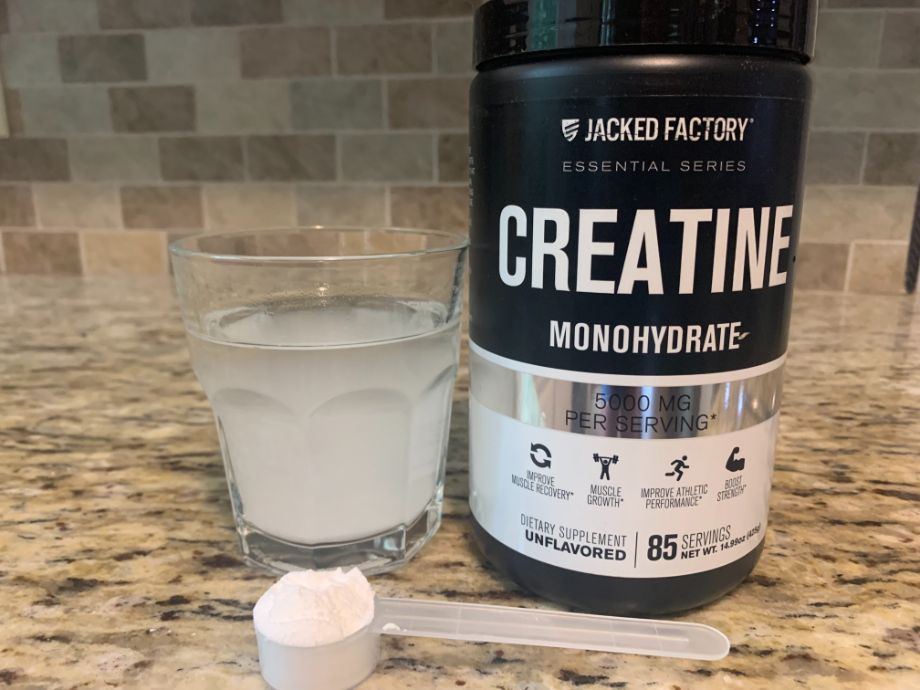
RELATED: Does Creatine Make You Gain Weight?
When Is the Best Time to Take Creatine? Final Thoughts
Overall, research hasn’t shown that taking creatine at a specific time of day, such as morning versus evening, pre-workout versus post-workout, or with a meal versus an empty stomach is more effective than at other times.
This could change as more research becomes available, but it appears that consistency with your creatine supplementation is more important than the time of day you take it. Based on the evidence we currently have, the best time to take creatine is:
- When you’ll remember to take it
- When it’s most convenient to take it
- When it most easily fits into your daily routine
Not sure which creatine supplement to take? Check out our expert-reviewed list of the 16 Best Creatine Supplements of 2025.
When Is the Best Time to Take Creatine? Q&A
Is it better to take creatine before or after a workout?
Research hasn’t shown that taking creatine before or after a workout is more effective. Ultimately, the best time to take it is when you can make it a consistent part of your daily routine.
How to take creatine for best results?
Commonly recommended creatine dosing includes a 5- to 7-day creatine loading phase followed by a long-term maintenance phase. It can be taken before or after a workout, as part of a pre-workout supplement, with food, or on an empty stomach.
Is it better to take creatine in the morning or at night?
Both of these options are effective when taking creatine. One isn’t more effective than the other, so choose the time of day that works best with your schedule.
Is it OK to take creatine with caffeine?
Taking creatine with caffeine is safe for most people as long as both are taken according to recommended guidelines. Caffeine is a stimulant while creatine isn’t, so they won’t have an additive effect.
Feel free to mix creatine and coffee as long as you’re following creatine dosing guidelines and not consuming more than the FDA-recommended limit of 400 milligrams of caffeine a day.
Does creatine timing matter?
The short answer is no. There is not concrete research pointing to a specific daily time to take creatine. Our recommendation is to take it at the best time for your schedule or with meals if it causes digestive upset when taken on an empty stomach.
These statements have not been evaluated by the Food and Drug Administration. This product is not intended to diagnose, treat, cure, or prevent any diseases.
References
- Candow DG, Forbes SC, Roberts MD, et al. Creatine O’Clock: Does Timing of Ingestion Really Influence Muscle Mass and Performance?. Front Sports Act Living. 2022;4:893714. Published 2022 May 20. doi:10.3389/fspor.2022.893714
- Riesberg LA, Weed SA, McDonald TL, Eckerson JM, Drescher KM. Beyond muscles: The untapped potential of creatine. Int Immunopharmacol. 2016;37:31-42. doi:10.1016/j.intimp.2015.12.034
- Kreider RB, Kalman DS, Antonio J, et al. International Society of Sports Nutrition position stand: safety and efficacy of creatine supplementation in exercise, sport, and medicine. J Int Soc Sports Nutr. 2017;14:18. Published 2017 Jun 13. doi:10.1186/s12970-017-0173-z


